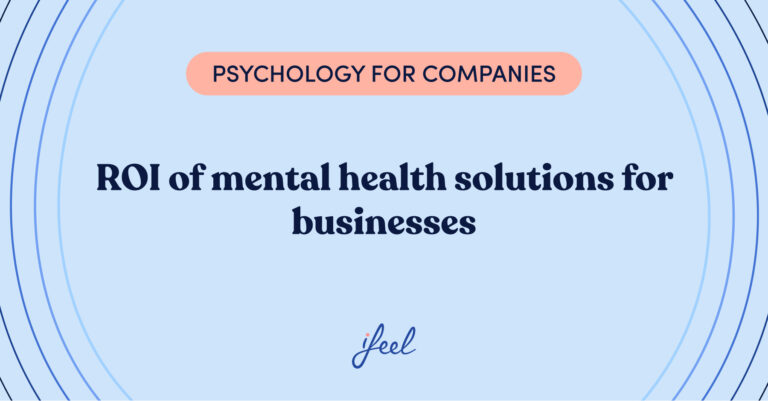Intelligent optimism helps us gain a critical vision, whether the situation is positive or negative. It is a mature way to face challenges but also a crucial way to foster our mental health and others’.
For some people, looking at their past, present, and, especially, future life with intelligent optimism is a spontaneous result of their way of being. For many others, however, it requires a conscious effort that is not always rewarded.
Keeping an optimistic outlook when things are really uphill is heroic and should not be expected of anyone, but how can we do it when, even if they are not so bad, the dark clouds are there?
It is then time to broaden the perspective, detaching, separating ourselves from the situation to be able to see its contours and observe it beyond. If we are very attached to detail, to our closest situation, it is likely that what we see will be negative and unpleasant. When things go wrong, short-term vision is the worst enemy of pessimists.
However, if we manage to transcend that narrow vision and widen our field of perception, it is more likely that we will include positive, alternative, more favorable material, and ultimately leading to intelligent optimism. This will help us to contextualize what we are experiencing and will provide us with elements that, while remaining realistic, will allow us to have more hope or faith in the future.

Optimism: breaking away from unproductive pessimism
In addition to what we have already said, we should be aware that our concerns about what is happening to us now or may happen to us come, partly, from our sources of information. Let us also remember that we have room for maneuver to counteract their influence on our state of mind.
Others pass on their pessimism to us if we allow them to. This means that we have to be critical of the pessimistic messages that we receive and we feel are excessive. In other words, we have to keep our feet on the ground and if things are going badly, admit it, but there is no need to be cynical and fear-mongering because that does not provide solutions.
We also have to know what kind of messages we expose ourselves to, both in our social circle and when it comes to being informed in the media and social media. We must learn to set limits for ourselves and also for others. Certain doses of reality are necessary and unavoidable in our interactions but, if we know that this or that source has a particularly dismal mood, we should not spend too much time absorbing them, or at least we should, but with the ability to change the subject so that the excessive pessimistic tone is not all-encompassing.
Cultivate realistic optimism
Optimism should not be naïve, but intelligent and responsible. We solve nothing by indefinitely denying reality and believing the fantasies we make up in our heads to counteract the fear of the future. However, we don’t gain anything by wallowing in worry, acting as if the worst catastrophes are going to happen, and contributing to a toxic and unproductive emotional environment.
A mature and intelligent optimism has to contemplate the different aspects of reality, the different scenarios, both favorable and unfavorable. It is necessary to evaluate each one in an even-handed way, that is to say, giving them the true importance they have.
It also helps to see things better to anticipate problems by looking for solutions, not just regretting that the problems have arrived. Sometimes there is simply nothing to do and no way to prevent the bad things from coming. At other times we do have some capacity for anticipation. Therefore, if we have an ace up our sleeve, we will feel more secure and we will not see the future in such a threatening way.
How to be optimistic… your way
We all know it is very easy to be optimistic when everything is going well, imagining how “bad it will be” if things go wrong if at the moment everything seems calm and in place.
The difficult thing is to gradually develop throughout life, as we learn and acquire experiences of all kinds, a stable attitude of openness to the possibility that good things will happen and the scenarios we fear the most will not occur.
If it helps, let’s try implementing these six suggestions in our daily lives. Perhaps they will help keep some of our demons at bay and forge a more intelligent optimism.
1. Anticipate problems
If a situation is hopeless just try to survive it the best you can. But if you see it coming, then bite the bullet and deal with it the first chance you get. Don’t give up and try to do your best if there is anything you can do to lessen its impact.
2. Don’t try to control everything
In life, there are positive and negative things, predictable and unpredictable, controllable and uncontrollable. Don’t put pressure on yourself to skillfully manage whatever happens. What will be will be, and when the time comes you will make your decisions with the available information.
3. Handle different points of view
There are circumstances that are objectively negative and others that, within the adverse, admit some alternative interpretation, even if the only way out is to pull through the negative circumstance.

4. Do not overload with negative information
Remember that saturation is intoxication. Being informed is important but we should not become martyrs or masochists of information. Once you know what you need to know about a certain subject, stop giving it unnecessary thought. Get busy with other things, don’t get hooked on the chronicles of disasters.
5. Have realistic expectations for the future
Irreparable tragedies aside, you will often find that things can go wrong, but remember that, along with your weaknesses, you also have your personal and social resources. Locate them, remember them and use them.
6. Give difficulties their real importance
As we said before, train an equanimous attitude and give things the importance (no matter how much) they have for you. If something is very serious, it is normal for you to worry a lot, but if it is not, it is don’t let it take over you. It is not necessary to use the maximum anxiety wild card for everything: it is not coherent with reality and it is not useful either.
It doesn’t matter if you are very optimistic or if you see the glass half empty. In the end, the important thing is to identify when your vital attitude stops helping you move forward and becomes a source of obstacles. If this happens, take note and put yourself in the hands of a professional psychologist who can help you find a meaningful path to your well-being.
How can ifeel help you reach intelligent optimism?
Ifeel has created an emotional well-being program for companies, designed by its team of leading psychologists to help companies detect when their employees need to boost their mental health and reach intelligent optimism to be able to face challenges and evaluate situations critically.
Thanks to this partnership, HR managers can receive personalized, data-driven advice on how to prevent their team members from being pessimistic and therefore affecting the company’s overall productivity. You can try our program today and start benefiting from its resources.
In addition, ifeel’s emotional well-being program for companies offers employees a mental health care service structured at different levels depending on what they need at any given moment. Employees can access a variety of mental health care tools via ifeel’s app. On a second level, they can receive emotional support through a chat with one of our platform’s licensed psychologists. If additional help is needed over time, they only have to access the third level: online psychological therapy with a psychologist who specializes in cases such as theirs.
If you would like more information about our emotional well-being program for companies, get in touch and we will contact your team as soon as possible. We hope you found this post on intelligent optimism helpful for your well-being.







